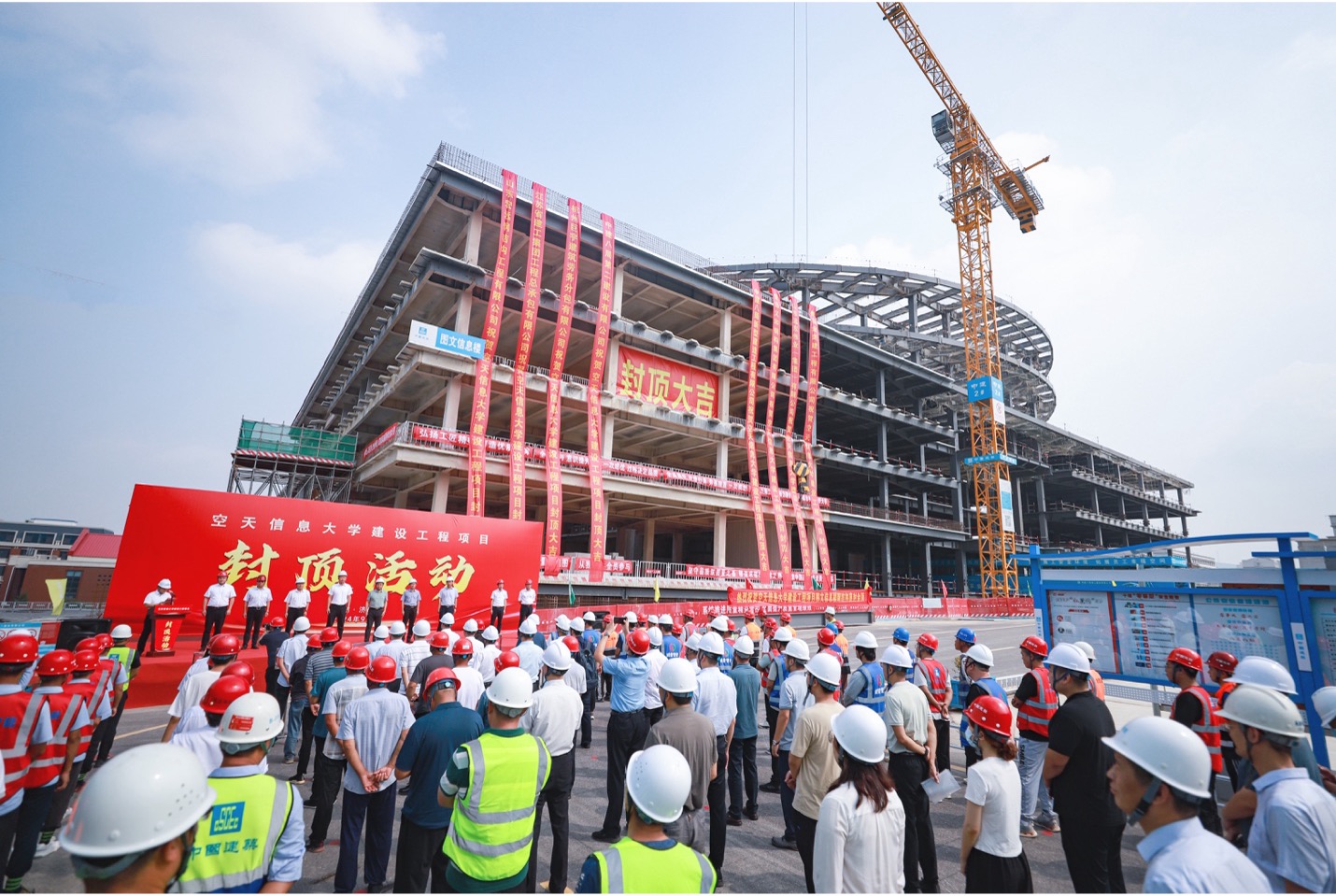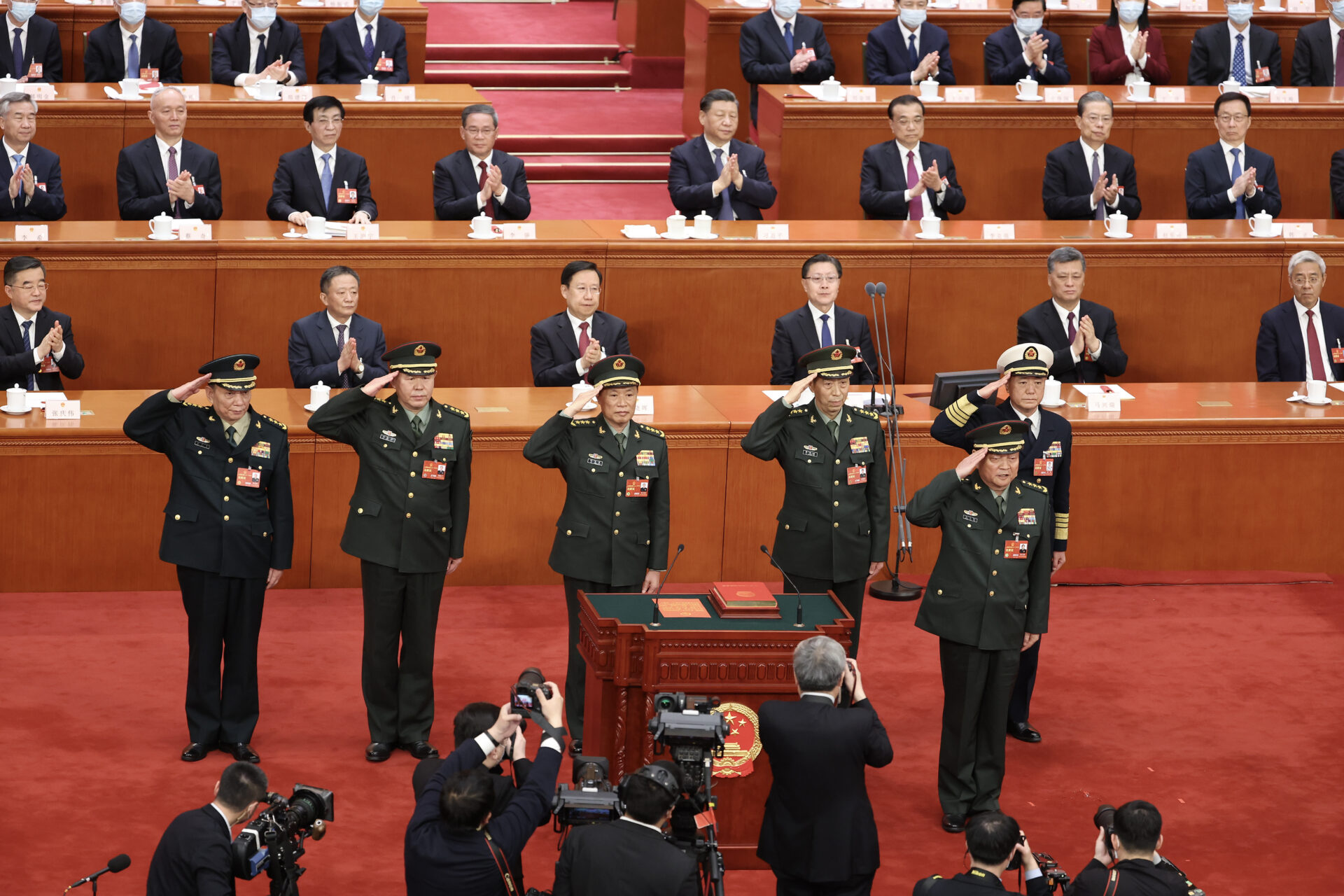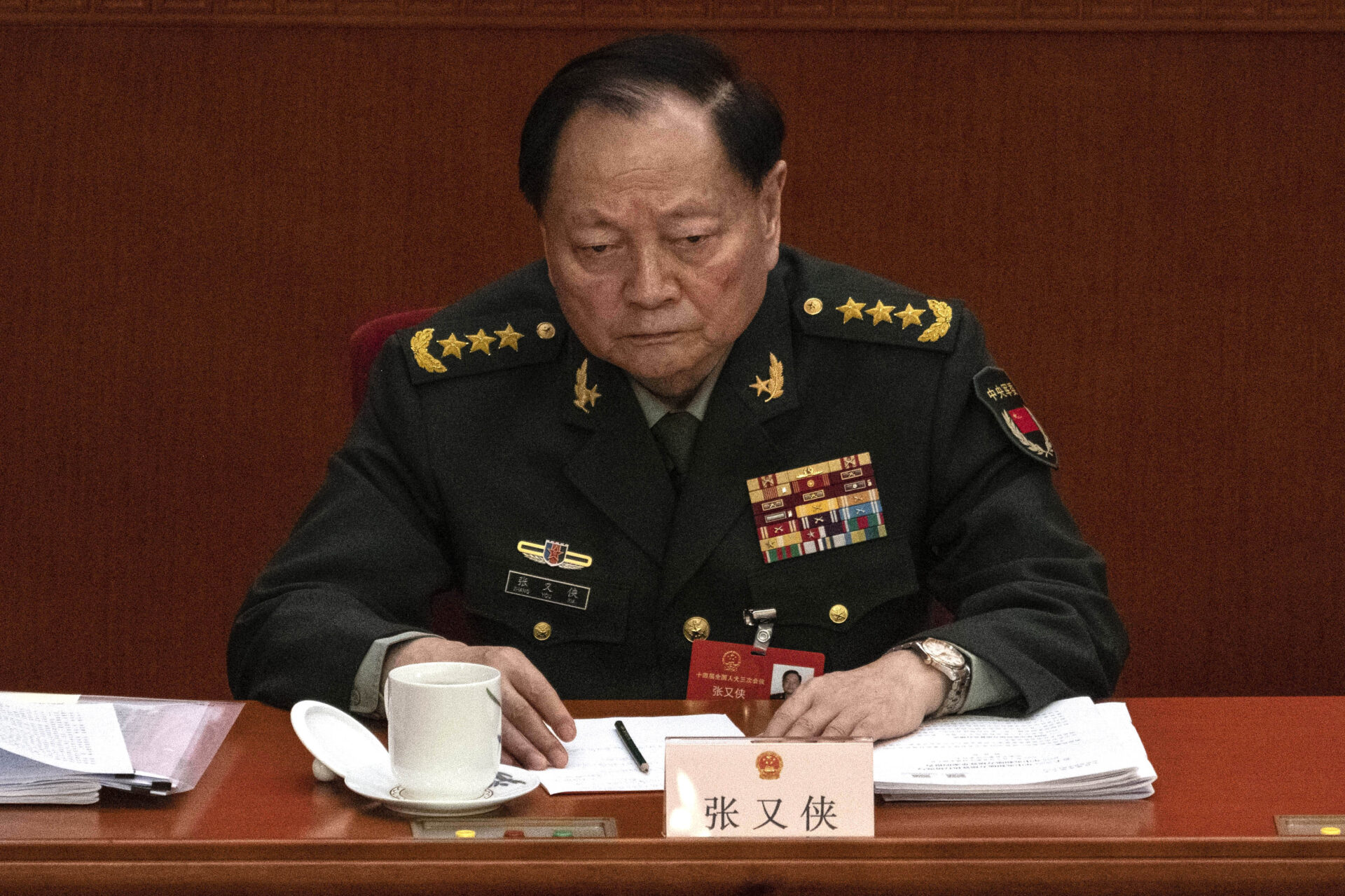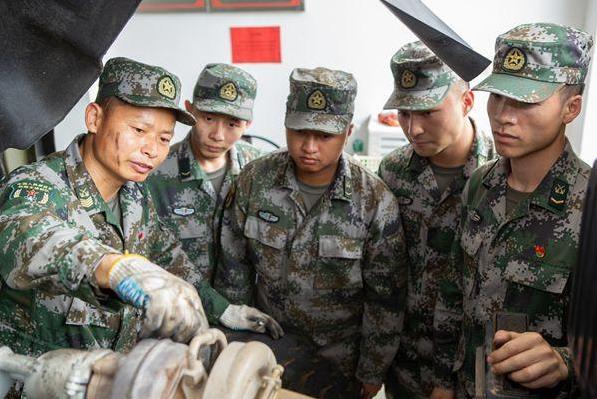
Gay in the PLA: Chinese Military Views on Homosexuals Serving in the Armed Forces
Gay in the PLA: Chinese Military Views on Homosexuals Serving in the Armed Forces
Introduction
Chinese President Xi Jinping has identified the recruitment and retention of top-notch human capital as key to the People’s Liberation Army’s (PLA) transformation into a “world-class military” by mid-century. In late January 2022, under Xi’s guidance as chairman, China’s Central Military Commission (CMC) issued its “Decision on Strengthening Military Talent Work in the New Era” (关于加强新时代军队人才工作的决定, Guanyu jiaqiang xin shidai jundui rencai gongzuo jueding), which calls human talent “a key element driving the Chinese military’s high-quality development and for winning the initiative in military competition and future warfare.” The decision calls on the PLA to develop high quality, professional talent in key areas—joint operations command, new-type combat forces, science and technology innovation, and strategic management—and for these individuals to provide “firm support” for achieving the Chinese Communist Party’s (CCP) military-strengthening goal and building the PLA into a world-class military (Xinhua, January 26).
The CMC’s decision echoes similar past statements by Chinese leaders who have emphasized the need for the “right” kind of people to lead and support China’s armed forces (US Army War College, July 23, 2021). A common thread is the requirement for PLA personnel to fill increasingly specialized billets as the force receives and operates new, high-tech information systems, weapons, and equipment (China Brief, January 14). Apart from pronouncements of desired education and experience levels for incoming servicemembers, the PLA also publicizes certain exclusion criteria. The PLA’s official conscription and recruitment website, for example, specifies several physical requirements including minimum height and passable body mass index (Zhongguo Zhengbing Wang, January 14, 2021). However, evidence indicates other potential exclusion criteria for Chinese service members that are less clearly stated.
This article offers a preliminary analysis of PLA views on homosexuals—in most cases, gay men specifically—serving in China’s armed forces. [1] The analysis draws upon 12 academic papers published by PLA-affiliated authors between 2009 and 2019 whose research focused on issues related to homosexuality and/or homosexuals serving in China’s armed forces. Ten of the 12 studies involved test subjects. This topic was difficult to explore due to the paucity of primary source material (PLA authorities may deem content on sexual minorities sensitive and unfit for public consumption). Yet it remains an important issue, as it has implications for the talent pool the PLA can draw from and for homosexual servicemembers’ ability to survive, thrive, and contribute to China’s objective of developing a world-class military force.
Unclear Policy
The PLA’s official stance on homosexuals serving in the military is unclear. There appears to be no explicit legal foundation for including or excluding them in China’s armed forces. Certainly, sexual minorities are not granted equal rights under Chinese law as heterosexuals (including the right to marry), but China’s Military Service Law does not expressly forbid homosexuals from joining the force. The Military Service Law is very expansive in indicating who has an obligation to serve and only exempts citizens with serious physical defects and disabilities and those who have lost their political rights (Xinhua, August 20, 2021).
One PLA study suggests that the PLA’s approach may be similar to the U.S. military’s previous “Don’t Ask, Don’t Tell” policy (repealed in 2011), which allowed homosexuals to serve provided they did not disclose their sexual orientation. In a study published in 2013, researchers from the PLA’s Second Military Medical University and 102nd Hospital claim that: “China currently does not have a written law or policy that allows or prohibits homosexuals from serving in the military. However, those who publicly declare their homosexual orientation are often dismissed from their posts.” [2] Since the 2013 study’s publication, evidence of the PLA establishing a related policy—public or military-internal—is lacking.
The PLA’s apparent policy gap should not be interpreted as an indication that few or no homosexuals serve in China’s armed forces. It is highly likely that a significant number of gay Chinese men serve in the PLA in a “closeted” fashion, i.e., without disclosing their sexual orientation to colleagues. Hundreds of thousands of male Chinese youths are conscripted or recruited each year, and, statistically speaking, thousands are likely homosexual. Although estimates vary, researchers believe that China is home to the world’s largest population of lesbian, gay, bisexual, and transgender (LGBT) individuals: potentially as many as 70 million, or about 5 percent of the population (BMC Public Health, May 12, 2020; Reuters, February 20, 2020). If gay men entering the PLA choose to keep their sexual orientation a secret, then they would be completely in line with broader national trends. A 2016 United Nations-commissioned report found that only 5 percent of gay men and other sexual minorities in China reveal their sexual orientation in the workplace (UNDP, May 16, 2016).
Focus of PLA Research
Since 2009, PLA researchers have conducted studies of active servicemembers’ views toward homosexuality and homosexuals serving in the armed forces. Some of these studies were modeled on analogous research conducted in the U.S. prior to the repeal of “Don’t Ask, Don’t Tell.” For example, PLA researchers translated and adapted the Attitudes Toward Lesbian and Gay Men (ATLG) Scale and Attitudes Toward Homosexuals in the Military Scale (ATHM). Other studies adopted methods such as self-made questionnaires, one-on-one interviews, and small group discussions. The table below summarizes related PLA survey research.
Table 1. Studies by PLA-Affiliated Authors on Chinese Service Members’ Views of Homosexuality) [3]
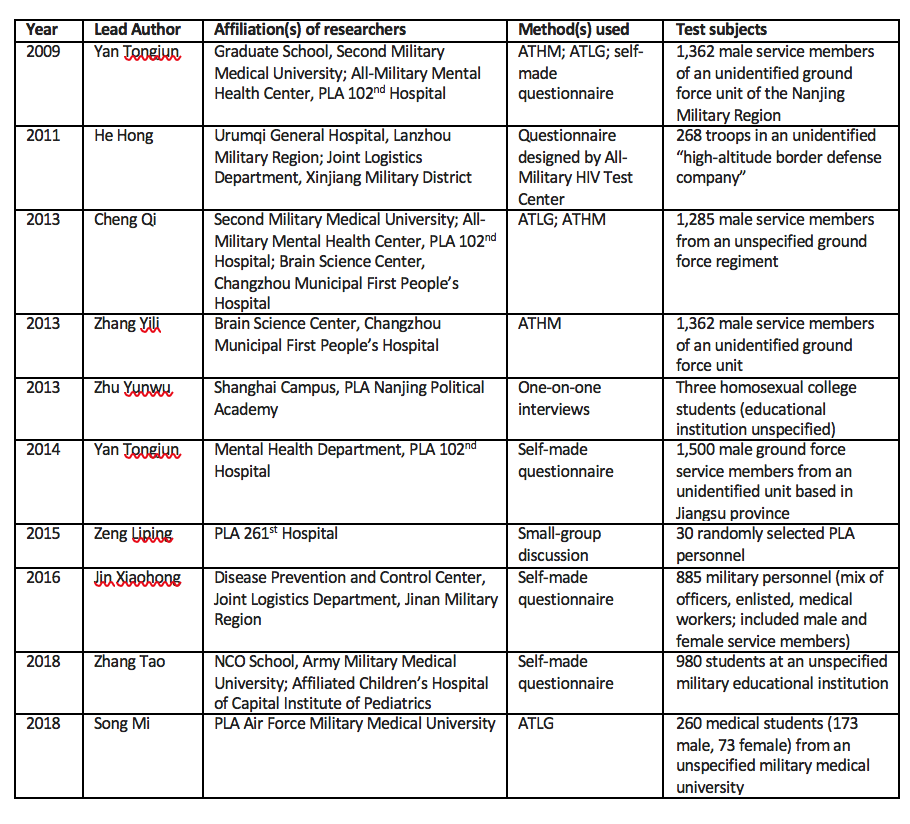
PLA authors’ overriding motivation for researching issues related to homosexuality is concerns about HIV transmission, based on the sample of writings reviewed for this article. In 2009, Yan Tongjun and Wang Huanlin of the PLA 102nd Hospital observed a worrying trend of rising HIV case numbers among Chinese service members. [4] A 2016 paper by Jin Xiaohong observes that “the spreading trend of HIV in China is gradually extending from high-risk groups” to everyday people. Jin, a researcher at the former Jinan Military Region’s Disease Prevention and Control Center, states that “following its prevalence and expansion, the influence of HIV on the military is becoming increasingly severe.”
PLA writings assert that male homosexuals are a particularly “high-risk” group prone to spread HIV. For example, Zhang Tao (2018), summarizing results of a survey of students at an unspecified PLA educational institution, expresses dismay that respondents were unable to “correctly” identify that male homosexuals spread HIV “more easily” than heterosexuals. Cheng Qi of the PLA’s Second Military Medical University asserts that male homosexuals pass not just HIV, but sexually transmitted infections in general, with “relative ease.” Xu Li, an assistant researcher at the PLA Academy of Military Medical Sciences, identifies sex between males as “high-risk behavior” and states that all sex other than “normal sex between husband and wife” is “high-risk.” [5]
To a more limited degree, PLA authors also discuss mental health risks that they perceive as associated with homosexuality. China’s psychiatric guidelines issued in 2001 removed homosexuality from the list of mental disorders. However, the guidelines still classify homosexuality as a symptom of ego-dystonic sexual orientation, a disorder in which one’s sexual orientation runs counter to one’s idealized self-image. [6] Therefore, per Yan and Wang (2009), there remains “an attitude in China’s scholarly community that views homosexuality as a type of illness.” Although several PLA studies make passing references to mental health—and indeed, a number of authors are affiliated with psychological research institutions—these references are eclipsed by concerns over HIV transmission risk.
Secondary motivations for PLA researchers’ work on homosexuality include filling a prior research lacuna and responding to the growing national acceptance of homosexuality in China. As Yan Tongjun (2009) states, “We were unable to find any [previous] study on the attitudes of Chinese servicemen toward homosexuals, based on a search of the China Biomedical Literature Database from 1978 to February 2009.” Cheng Qi (2013) attests that “In recent years, the degree to which homosexuals are accepted within Chinese society has increasingly risen, and against this trend, military servicemen’s understanding and acceptance of homosexuals will also change.”
PLA Researchers’ Recommendations
PLA studies on homosexuality are not uniform in their conclusions and recommendations. A few young PLA researchers assert that having sexual minorities in the military is inescapable and recommend steps to ensure they are not impediments to organizational efficiency. For example, Zhu Yunwu (2013), a master’s student at the PLA Nanjing Political Academy, argues that homosexuals experience higher psychological pressure from their families and society and should be “provided better environments for working, living, and studying.” Song Mi (2018), a PLA Air Force Medical University undergraduate, states that military medical students have the important responsibility of treating diverse groups—homosexuals included. Song expresses hopes that her research will help “eradicate discrimination against homosexuality and provide reference for relevant education at military educational institutions.”
These two authors aside, a larger body of researchers interpret service members’ positive views of homosexuals as a failing of the PLA health education system and recommend “strengthening” education to instill “correct” views of love, marriage, and sex. Addressing results of a survey distributed to male service members in which 58 percent agreed that “state laws should recognize the legality of female homosexual behavior,” Yan (2014) concluded that such results demonstrated the need “ to carry out health education and help [service members] establish a correct understanding of sex.” Zhang (2018), who found that 29.8 percent of military student respondents to a questionnaire expressed “understanding or empathy” toward homosexuals, recommended “strengthening education and propaganda” on “ethical factors related to sex.” The study by Zhang (2013), which surveyed 1,362 ground force personnel, states that their research can generate more “targeted education and guidance” that helps military personnel understand the “correct views” of love and marriage. Another study by He Hong (2011), which found that some border troops did not even know what homosexuality was, stresses the importance of “timely education and guidance on the correct sexual orientation” (emphasis added).
Conclusion
The PLA’s ambiguous public stance toward sexual minorities and the lack of published data on this topic make it difficult to draw definite conclusions about how homosexuals are viewed and treated in China’s armed forces. Available data suggests that active duty gay men must conceal their sexual orientation or face dismissal, despite the lack of a legal basis for termination. Furthermore, the linkages drawn by PLA researchers between homosexuals, HIV transmission, and mental health suggest that gay and lesbian individuals face a toxic atmosphere in China’s military. Propaganda and education designed to reinforce views of homosexuals as sexually promiscuous and mentally unstable could increase homosexual service members’ anxiety and decrease their ability to contribute to the force.
The Chinese military’s views of homosexuals could change over time as the composition of active servicemembers changes. PLA studies identify influential factors that are likely to make Chinese military personnel view homosexual servicemembers more positively or negatively (see Table 2 below). Some of these factors, such as childhood environment and level of education, suggest that the PLA as a whole may view gay military personnel more positively in the future. More than 60 percent of China’s population is now urban—a number which could increase to 75 percent by 2030 (Bloomberg, July 19, 2021), and the PLA has long sought to increase the ratio of service members with advanced education degrees (CASI, 2020).
Table 2. Influential Factors of Chinese Service Members’ Views of Homosexuality Identified by PLA Researchers [7]

On the other hand, purportedly influential factors such as sex and time in the military could act as countervailing forces to positive views of homosexuality within China’s armed forces. The PLA remains composed almost entirely of male service members, and the fact that additional years of service correlates to more negative views of sexual minorities suggest that China’s military culture writ large could be an obstacle to change.
In the future, how the PLA approaches the issue of homosexuals serving in the military will be shaped by multiple factors, including broader societal views of sexual minorities and the military’s efforts to recruit talented individuals. Over time, increased levels of acceptance by the Chinese public and government could lead to greater rights for sexual minorities and could eventually create pressure on the PLA to allow homosexuals to serve openly. This seems unlikely in the near term, however, given China’s recent regulatory crackdown on the LGBT community (South China Morning Post, October 7, 2021). Barring external pressure, the PLA could still find it beneficial to adjust its internal policies and education to forge an environment more positive to gays and lesbians serving in the “closet.” Whether the PLA does so will depend on whether it views homosexual service members as a liability or an asset.
Brian Waidelich is a Research Scientist at the China and Indo-Pacific Security Affairs Division of CNA, a nonprofit research and analysis organization located in Arlington, VA. This work represents his own views and should not be regarded as representing the opinions of either CNA or its sponsors.
Notes
[1] The author was unable to find papers by PLA-affiliated authors with detailed discussions of bisexual or transgender individuals, and therefore limited the scope of this article to PLA views on homosexuality. PLA writings cited in this article generally employed the term “tongxinglian” (同性恋), the most official and academic term for “homosexuality” in mainland China. Although “tongxinglian” may refer to both male and female homosexuality, the majority of the PLA writings reviewed focused mostly on gay men, perhaps due to the fact that the majority of PLA servicemembers are male.
[2] Cheng Qi, et al, “Attitudes of Servicemen toward Homosexuals and Their Serving in the Military” (军人对同性恋者及其在军队中服役的态度), China Journal of Health Psychology 21, no. 12 (2013): 1801-1803.
[3] Data in Table 1 is compiled from the following sources:
- Yan Tongjun, et al, “Attitudes of Young Chinese Male Servicemen Toward Homosexuals and Toward Homosexuals Serving in the Military” (中国男性青年军人对同性恋者及其服兵役的态度), Chinese Journal of Behavioral Medicine and Brain Science 18, no. 11 (Nov. 2009): 1034-1036.
- He Hong, Qian Kuiguo, and Liu Xianchao, “Survey on the Conditions of HIV-Related Knowledge and Understanding Among Unidentified High-Altitude Border-Defense Officers and Men” (某高原边防官兵艾滋病相关知识认知状况调查), Journal of Preventive Medicine of the Chinese People’s Liberation Army 29, no. 4 (2011): 279-280.
- Cheng Qi, et al, “Attitudes of Servicemen toward Homosexuals and Their Serving in the Military” (军人对同性恋者及其在军队中服役的态度), China Journal of Health Psychology 21, no. 12 (2013): 1801-1803.
- Zhang Yili, et al, “Attitudes of Chinese Servicemen Toward Homosexuals Serving in the Military and Influential Factors” (中国军人对同性恋者在军队中服役的态度及影响因素), Chinese Journal of Behavioral Medicine and Brain Science 22, no. 1 (Jan. 2013): 40-42.
- Zhu Yunwu, “Qualitative Research on Changes in the Psychological Conditions of College Student Homosexuals” (大学生同性恋心里状况的质化研究), Journal of Campus Life and Mental Health 11, no. 5 (2013): 333-335.
- Yan Tongjun, et al, “Preliminary Survey and Analysis of 1,450 Young Male Military Servicemen’s Views on Sex” (1450名男性青年军人性观念的初步调查与分析), The Chinese Journal of Human Sexuality 23, no. 3 (March 2014): 110-112.
- Zeng Liping, et al, “Small Group Discussion on the Application of Sexual Health Needs Evaluations among Young Military Officers and Men” (小组访谈法在部队青年官兵性教育健康需求评估中的应用), Chinese Society of Psychiatry, Chinese Medical Association, Conference held on September 17, 2015.
- Jin Xiaohong, et al, “Analysis of a Survey on the Current Understanding of AIDS Among Military Officers and Men” (部队官兵艾滋病认知现状调查分析), The Journal of Practical Medicine 33, no. 6 (2016): 533-535.
- Zhang Tao, et al, “Survey on the Knowledge, Attitudes, Behaviors, and Needs Related to Reproductive Health of Students at an Unidentified Military School” (某军校学员生殖健康知识、态度、行为及需求调查), China Journal of Health Education 34, no. 8 (2018): 727-731.
- Song Mi, et al, “Investigation of Military Medical Students’ Attitudes Toward Homosexuality and Relevant Influential Factors” (军校医学生对同性恋的态度及其相关影响因素调查), Medical Journal of National Defending Forces in Northwest China 39, no. 6 (Jun. 2018): 394-397.
[4] Yan Tongjun and Wang Huanlin, “An Investigation of Homosexuality—A Letter to the Editor” (关于同性恋的探讨–读者来信), Journal of Clinical Psychiatry 19, no. 3 (2009): 215-216.
[5] Xu Li, “Several Fundamental Issues that Must be Grasped in the Revision of the HIV/AIDS Prevention and Control Regulation” (《艾滋病防治条例》修订应把握的若干原则性问题), China Health Law 27, no. 4 (2019): 47-51, 62.
[6] Chinese Medical Association Psychiatry Branch, eds., Chinese Classification of Mental Disorders (CCMD-3) (中国精神障碍分类及诊断标准), Shandong Science & Technology Press, 2001.
[7] Table 2 summarizes influential factors identified in: Cheng Qi et al., “Attitudes of Servicemen toward Homosexuals and Their Serving in the Military”; Song Mi et al., “Investigation of Military Medical Students’ Attitudes Toward Homosexuality and Relevant Influential Factors”; Yan Tongjun et al., “Attitudes of Young Chinese Male Servicemen Toward Homosexuals and Toward Homosexuals Serving in the Military”; Zhang Yili, et al., “Attitudes of Chinese Servicemen Toward Homosexuals Serving in the Military and Influential Factors.”
